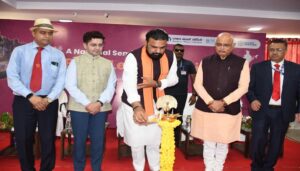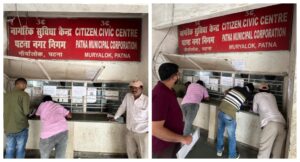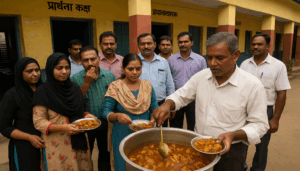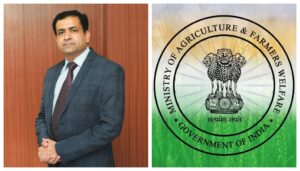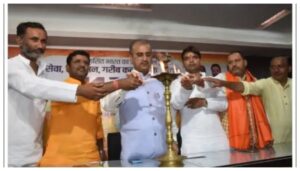Bihar Minister Reviews Pollution Control Measures, Orders Strict Action
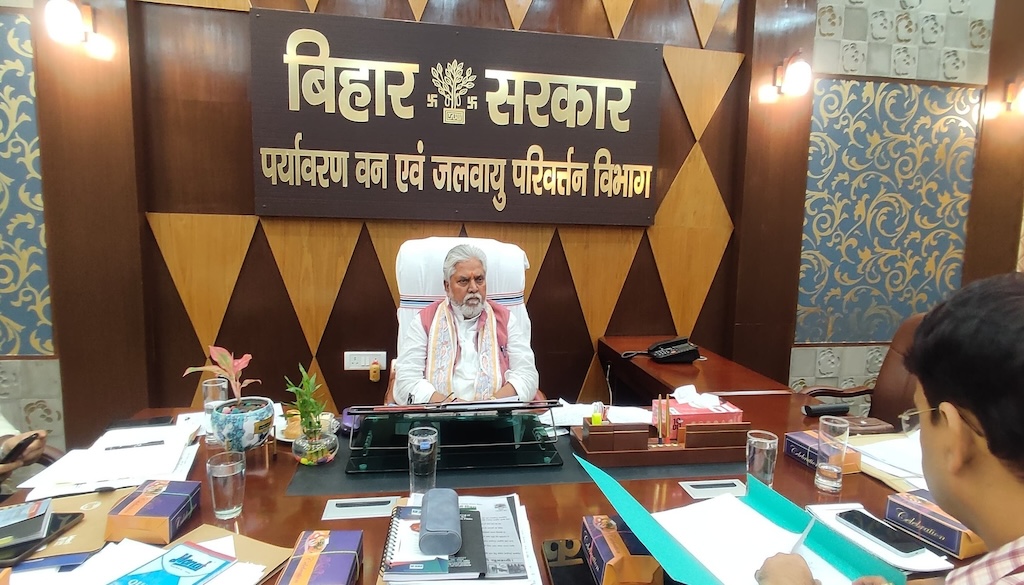
Patna: Bihar’s Environment Minister, Dr. Prem Kumar, has directed officials to intensify efforts to combat air, water, and noise pollution across the state, including in the capital, Patna. Chairing a review meeting at Aranya Bhawan, he assessed ongoing and upcoming projects by the Bihar State Pollution Control Board (BSPCB) and called for immediate action on several key environmental issues.
Senior officials present included the Principal Chief Conservator of Forests, the Director of Ecology and Environment, and the Member Secretary of the BSPCB, among others.
Air and Water Pollution: Major Initiatives
The meeting reviewed the installation of Flue Gas Desulfurization (FGD) units in six National Thermal Power Corporation (NTPC) plants, with progress ranging from 50% to 80% at plants in Barh, Navinagar, BRBCL, and Kahalgaon, while tenders have been issued for NTPC Kanti and Barauni. All units are expected to meet the December 2026 deadline.
On water pollution, the BSPCB reported that while pH, DO, BOD, COD, and TSS levels in the Ganga remain within standards, Total Coliform (TC) and Faecal Coliform (FC) levels exceed safe limits due to untreated sewage discharge. The Namami Gange project has set up sewage treatment plants (STPs) in Beur, Karamlichak, and Saidpur (Patna), with additional STPs in Barh, Sonpur, Sultanganj, and Nauwagachhia now operational. Trial runs are underway at STPs in Munger, Maner, Chhapra, Danapur, and Phulwarisharif.
Dr. Kumar instructed District Environment Committees to monitor river pollution closely and emphasized stopping solid waste dumping along riverbanks. He directed local municipal bodies to fine offenders and ensure waste removal.
Crackdown on Single-Use Plastics and E-Waste
Expressing frustration over the continued availability of single-use plastics despite a statewide ban, Dr. Kumar ordered raids in all municipal areas and regular progress reviews by District Environment Committees. The coordinators—Divisional Forest Officers—will submit reports to the Environment, Forest, and Climate Change Department and the BSPCB.
For e-waste management, the minister called for setting up processing and recycling units across Bihar to prevent improper disposal.
Bio-Medical Waste and Manpower Shortages
The BSPCB reported that four collective bio-medical waste treatment plants (CBWTFs) are operational to handle hospital and nursing home waste. The minister sought immediate recruitment to address staff shortages in pollution control operations.
Illegal Brick Kilns and Stubble Burning Ban
The BSPCB revealed that over 5,000 brick kilns across Bihar have transitioned to cleaner technology. Dr. Kumar directed the preparation of a list of legally operating kilns and ordered district authorities to shut down illegal ones immediately.
To curb stubble burning, which affects air quality, the minister reaffirmed the government’s policy of denying subsidies for three years to farmers found burning crop residue.
Environmental Awareness and Gaya’s Falgu River
Dr. Kumar stressed the need for public awareness campaigns, particularly in Gaya, a significant religious site where a rubber dam on the Falgu River attracts thousands of pilgrims. He directed authorities to install hoardings along the river, warning against dumping plastic, construction debris, or industrial effluents.
Improving Air Quality in Cities
The meeting also reviewed air quality monitoring in Patna, Gaya, and Muzaffarpur. Officials were instructed to take all necessary measures to ensure air pollution levels remain within permissible limits.
Public Cooperation Essential
Dr. Kumar praised the BSPCB’s efforts in pollution control and urged the public to play an active role in reducing air, water, and noise pollution. He called for community participation in ensuring a cleaner environment and emphasized strict enforcement of pollution regulations.


